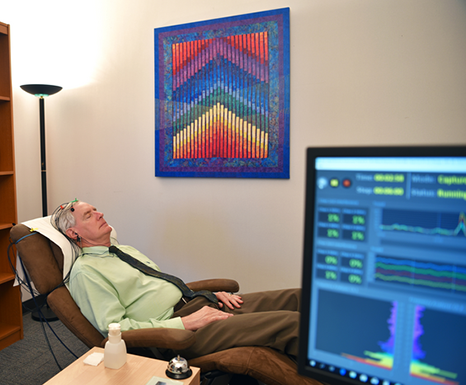Researchers at Wake Forest University School of Medicine tested a closed-loop acoustic stimulation neurotechnology in its ability to treat insomnia. The device in question has been developed by cereset, a medtech company headquartered in Arizona. Insomnia is not just unpleasant, but can have significant long-term health consequences, including an increased risk of cardiovascular disease, obesity, and diabetes. This technology works by monitoring brain waves through scalp sensors and then translating these waves into auditory tones that are played back to the wearer through ear buds. The researchers describe the technology as “allowing the brain to listen to itself”, leading it to break stress patterns that may interfere with sleep.
An occasional night of poor sleep is common for many of us, but some people experience severe and sustained insomnia. This is not just unpleasant and tiring, but can have significant long-term health implications, highlighting the importance of sleep for overall health. This includes a heightened risk of obesity, cardiovascular disease, and diabetes. Simply taking sleeping tablets every night is not suitable for everyone, and can come with side-effects and even result in dependence. Lifestyle changes, including increased exercise and sleep hygiene approaches, do not work for everyone, although they are likely to help.
Developing better solutions for those with insomnia is clearly needed, and this latest technology ticks some of the boxes. Called Cereset Research with Standard Operating Procedures (CR-SOP), the technology is an evolution of an earlier system called High-resolution, Relational, Resonance-based Electroencephalic Mirroring (HIRREM), and uses faster computers and improved sensors for better performance.
The system is based on echoing brain waves. This involves measuring brain waves and then using software to convert these brain wave data to audible tones with varying pitch. By playing these noises to the wearer in a closed loop, the technology purports to allow the brain to listen to its own chatter, in a sense, which appears to create space for stressful activity to subside.
“CR-SOP allows the brain to reset from stress patterns that contribute to insomnia,” said Charles H. Tegeler, a researcher involved in the study. “During the intervention, the brain continuously updates with respect to its own activity patterns, resulting in auto-calibration or self-optimization.”
So far, in a clinical trial, participants who received 10 sessions of CR-SOP reported significantly reduced insomnia symptoms and major improvements in autonomic function.
Study in journal Global Advances in Integrative Medicine and Health: Cereset Research Standard Operating Procedures for Insomnia: A Randomized, Controlled Clinical Trial
Via: Wake Forest Baptist
